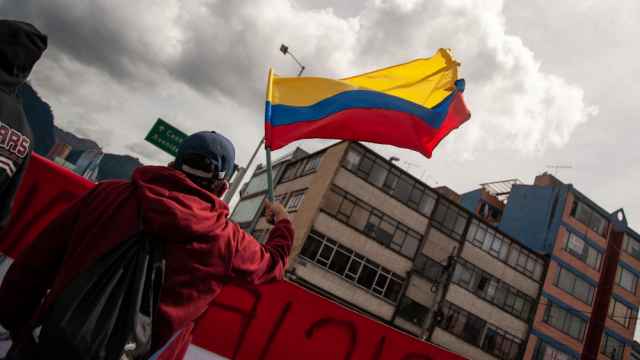Russia has recognized violence-plagued Bolivia’s interim president until the South American nation’s next elections, the state-run RIA Novosti news agency quoted a senior diplomat as saying Thursday.
Bolivia’s pro-Russian President Evo Morales resigned and fled the country this week to ease the violence that has been ongoing since a disputed vote last month. Senate vice-president Jeanine Añez assumed Bolivia’s presidency as Morales, speaking from Mexico where he was granted asylum, accused the conservative opposition of staging a coup.
“Russia will perceive Mrs. Añez as Bolivia’s leader, but only until the elections,” Russia’s Deputy Foreign Minister Sergei Ryabkov was quoted as saying.
Ryabkov said Moscow “took into account that there was no quorum in the parliament at the time of her confirmation in this position.”
He also said that Russia believes the events leading up to Morales’ resignation amounted to a state coup.
The United States recognized Bolivia’s de-facto government and U.S. Secretary of State Mike Pompeo congratulated Añez in her new role Wednesday as fresh clashes broke out between Morales supporters and riot police.
Moscow has commercial interests in Bolivia where Russia's state atomic energy agency is building a nuclear center. The agency expects the events unfolding in Bolivia to have a “minimal” impact on the project, its head Alexei Likhachev said Thursday.
A Russian news investigation last month said Russian political consultants ran online campaigns supporting Morales and criticizing his opponents in a bid to help re-elect the Kremlin-friendly leader.
Russia’s Foreign Ministry on Thursday dismissed the investigation as “a standard set of Western propaganda clichés.”
A Message from The Moscow Times:
Dear readers,
We are facing unprecedented challenges. Russia's Prosecutor General's Office has designated The Moscow Times as an "undesirable" organization, criminalizing our work and putting our staff at risk of prosecution. This follows our earlier unjust labeling as a "foreign agent."
These actions are direct attempts to silence independent journalism in Russia. The authorities claim our work "discredits the decisions of the Russian leadership." We see things differently: we strive to provide accurate, unbiased reporting on Russia.
We, the journalists of The Moscow Times, refuse to be silenced. But to continue our work, we need your help.
Your support, no matter how small, makes a world of difference. If you can, please support us monthly starting from just $2. It's quick to set up, and every contribution makes a significant impact.
By supporting The Moscow Times, you're defending open, independent journalism in the face of repression. Thank you for standing with us.
Remind me later.






